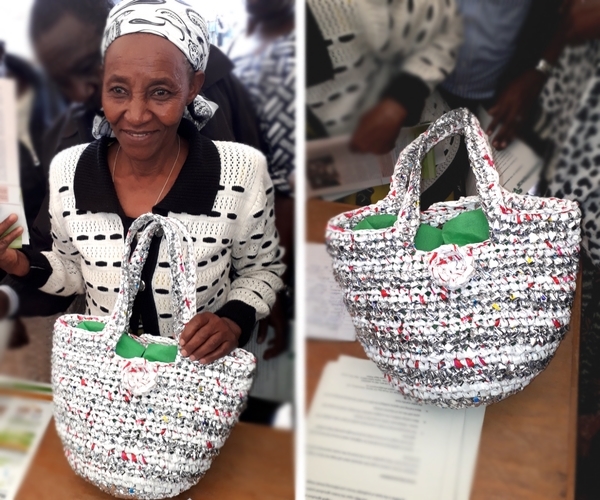I get the chicken wings and fries combo with a cold Coke. You get a chicken burger, fries and fresh passion juice. Additionally, we get small sized cups of ice cream to cool off and extra dipping for my wings. The food is packed in paper boxes, the drinks, ice-cream and dipping in plastic bottles and cups and the extra ketchup in hard plastic paper. After our meal, we dispose the boxes into a bin, fully satisfied we have played our role as citizens in efficiently managing our waste.
Kenya joins Morocco, Mauritania, Tunisia and others in plastic ban. Though a number of us perform an important role of ensuring the waste we use goes into the right place, there is so much more that can be done in managing this waste. Recycling is one of the best processes that work inclusively in ensuring that such waste is reused and our environment remains clean and conducive for our habitation.
In 2015, World Bank Urban Development Series reported that Africa produces about 70 million tons of waste every year while 300 million tons is produced worldwide. With rapid development, growth and expansion of economies and urban centres, waste production is estimated to rise to 160 tons by 2025, if no efforts are put into salvaging the situation.
Luckily, countries like Rwanda and Kenya have made bold moves against the manufacturing of plastic bags to reduce dumping in their countries. Though not everyone is a fan of the ban, Kenyans have come up with creative alternatives as compliance to the plastic ban that was enacted on the 28th of August 2017.
Khaki bags and eco-friendly bags have replaced the plastic bags in the supermarkets and most business. Habib El- Habr, an expert on marine litter working with the UN environment programme in Kenya says plastic bags also enter the human food chain through fish and other animals, therefore drawing emphasis on the importance of the plastic ban.

Veronicah Munguti, a local farmer from Kenya is now creating handags out of plastic bags.
However, more can be done. The food and beverage industry has highly contributed to the increase of waste production because of the high demand to produce take away accessories for a profitable business. Some restaurants like KFC, serve an eat in customer with the same take away boxes they would for one who would eat out. To ensure efficient waste management, the beautifully branded carton take away boxes, plastic soda bottles, ice-cream cups, forks and straws can all be recycled and for additional use rather than ending up as litter and causing more harm to our already ailing environment.
Sadly, the manufacturers of these plastics are not playing their role responsibly in ensuring that their produce is environmental friendly or at least being recycled. Coca Cola UK was recently asked to increase the amount of recycled plastic in its bottles to 50% following pressure from Greenpeace as smaller companies were already doing more than them.
More people should be encouraged to venture into the recycling business rather than the production sector of plastics and similar non-biodegradable products. In fact, this is already happening as we occasionally hear of different individuals who start small-scale recycling business that later grow and increase in productivity. A good example is Lorna Rutto, the founder of Ecopost, one of Kenya’s biggest plastic recycling businesses. Her business has saved over 250 acres of forest that would have been destroyed to cater for construction needs of Kenya’s fast growing urban sector. She is just one of the many individuals who have tapped into this profitable market that works hand in hand in protecting our environment.
We can all take part in recycling. It can be easily done at home, by separating biodegradable from non-biodegradable garbage, opting for reusable shopping bags instead of plastic bags, buying products that can be recycled as well as buying products that have been made from recycled material. These small deeds may look unnecessary but in the wise words of Desmond Tutu, “Do your little bit of good where you are; it’s those little bits of good put together that overwhelm the world.”
Hopefully, next time we grab lunch, we can peacefully enjoy it in recycled take away boxes, yes?
